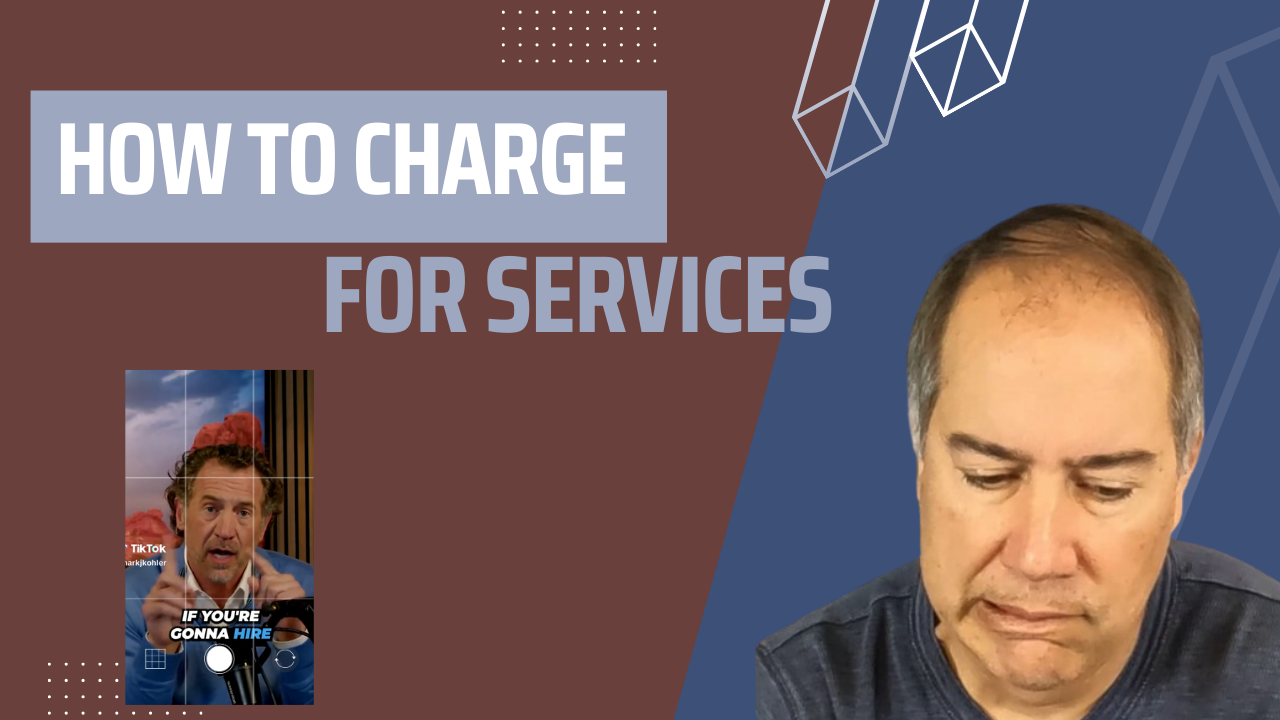How Much Should You Charge for Your Employees’ Value?
Growing your business from just you to bringing on employees is a big step forward! It can also bring some headaches such as knowing how to re-price for your service or products as well as other employee benefits to be aware of. Watch Matt react to this video on this topic and hopefully you’ll leave with a little more confidence.
There are tons of people out on social media giving business advice. Some of it is good advice, but most of it isn’t good. In this series watch CapForge’s owner react to different advice videos. He’s an expert in all things business and has 20+ years of experience under his belt. Some of the things he reacts to might even surprise you!
Video Transcript:
Business Advice Video:
If you’re gonna hire an employee, you want to be charging for their services 3x what you’re paying them at least. You’re gonna bring in gross revenue of let’s say $100. You want a third of that to go to labor. A third of that to go to overhead. And a third of that to go to profit. With that said, you’re going to make sure you have an employment agreement. And you’re gonna have an employee handbook. You’re gonna set up a payroll procedure. And an ADP for payroll. And then the big one is you’re gonna have a training program.
Matt’s Review:
So I agree with some of what he says. working backwards. There’s no point in hiring somebody if you aren’t able to train them on what you want them to do. Even if you’re hiring somebody who has experience in the thing that you’re hiring them for. You’re hiring somebody for a plumbing position at your plumbing company and they’ve been a plumber for 10 years. That doesn’t mean they know everything about how you want your plumbing business to operate. Maybe they’re used to doing a job where they run to Home Depot five times in order to complete the job. And it takes six hours to change out a garbage disposal. And you want them to do one trip, right? Go there, figure out the issue, get everything in one shot, get it done, and be done in two hours. So even though you’re hiring an experienced plumber you have a way that you want them to work. And the only way they’re gonna know that is if you train them. And the only way that’s gonna happen is if you have a training program. It doesn’t have to be you know super formal with videos and handbooks and all kinds of stuff. But you should have something in place where you convey the information you want them to know, about how to work your business, in a way that they can absorb and then you can hold them accountable to, right? If you just get mad at them because they took 6 hours on a plumbing job but you never told them you want it done in two, then how are they supposed to know, right? And the way they find out shouldn’t be you yelling at them. It should be you telling them and setting expectations before you even send them on that very first job.
Backing up a step. They say ADP, I say I don’t know if I go with ADP. We have other payroll providers that we recommend over ADP. My big gripe with ADP is they’re a huge company, so customer service is often spotty. And they use commissioned salespeople to sell their payroll services. Anytime you’re dealing with someone who’s a commissioned salesperson that immediately tell you there’s a lot of margin in that price in order to be able to pay fat commissions and send their people on trips to the Caribbean and to Hawaii, and whatever. Their top performers get all kinds of perks. Well, who’s paying for those perks? You are, with the prices that they’re charging you. So I think there’s better options out there. Absolutely, if you have employees you should have a payroll system set up so you can pay them correctly. You should have an employee handbook so they understand their roles and requirements and what you’re providing and all that stuff. All good. Do payroll right. If you’re gonna have an employee, even one employee, spend some time to make sure you do it right.
But back to his original point that a *customer should be charged three times whatever you pay them [the employees]. Maybe yes, maybe no. It depends what job they’re doing and how much you’re charging. What if you could get 10 times what you’re paying them from your customer? Why would you only charge three times then, right? You would charge 10 times if that’s what the value what they’re providing is then charge 10 times. On the other hand, maybe the going rate is only two times what you’re paying your employee. Well, you could try to charge more but you’re probably gonna get a lot of no’s. Maybe you have to make it work with only two times. But maybe that’s okay because your overhead might not be 33%, maybe it’s only 5%. So these generalizations are okay as a starting point. But you really have to know your business, your market, your customers, and the value you’re providing. Don’t undercharge or overcharge. Charge what the right number is. And then make sure it works for your business with your cost and your structure.







